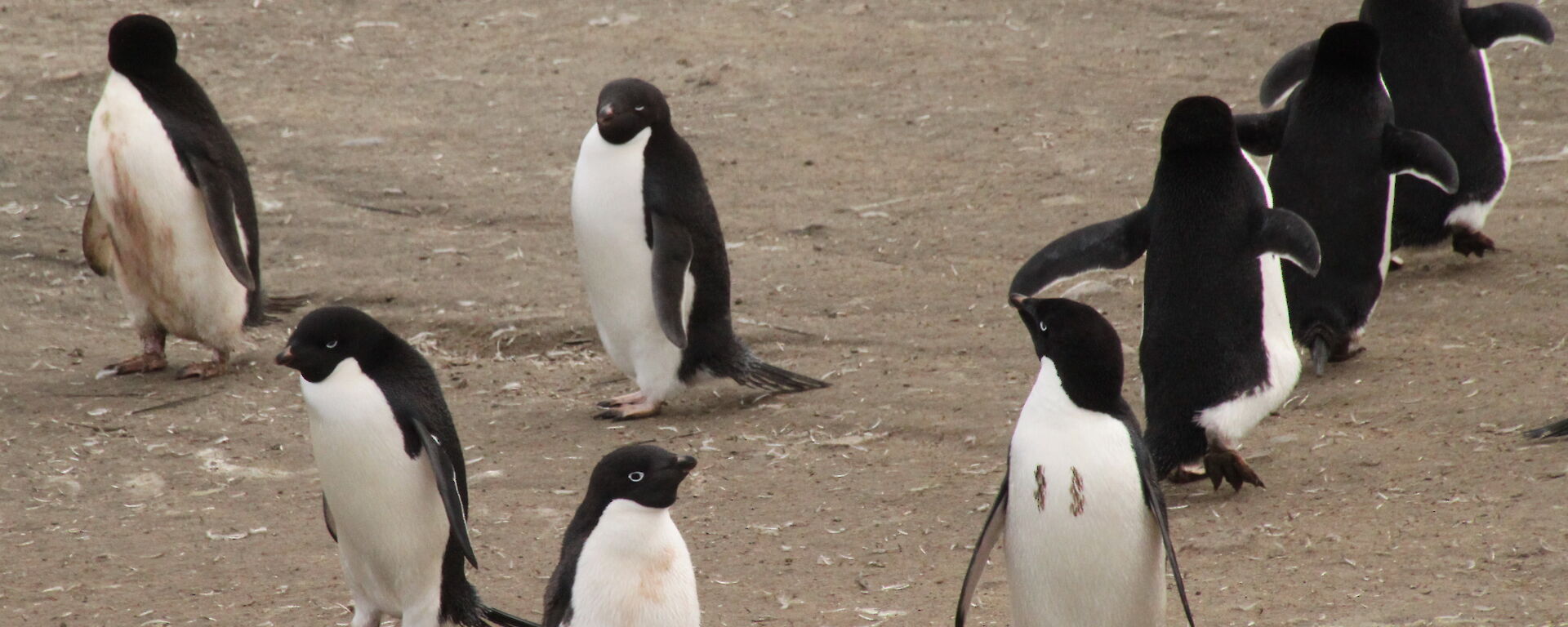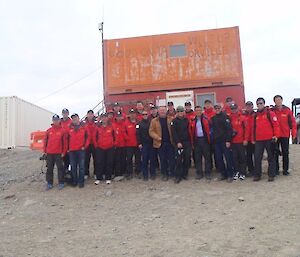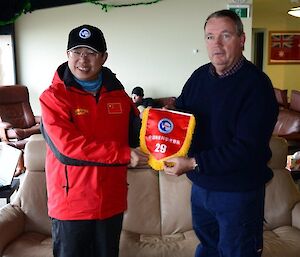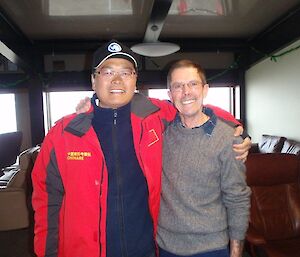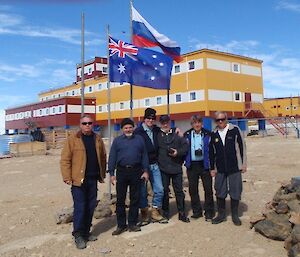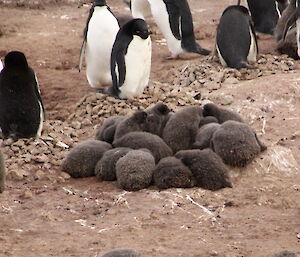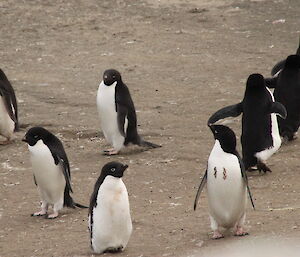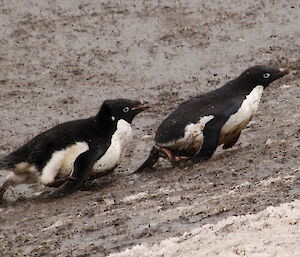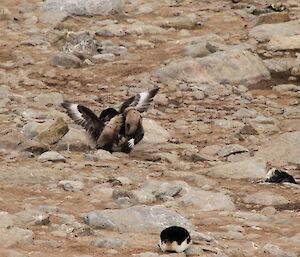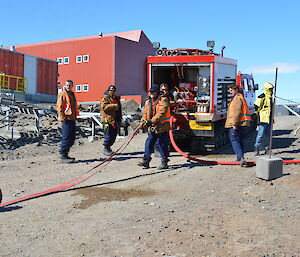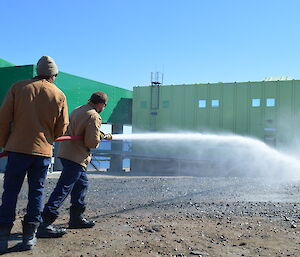It has been a while since the first update of the Hop Island team and here they are, probably in their last week on the island. It has certainly been an interesting time! The study of Adelie penguin foraging behaviour was quite successful. In total some 41 adult penguins “volunteered” their services for the glory of science and carried a variety of electronic data loggers. At the time of writing, 40 of those returned and were relieved of their little packages. They were not exactly pleased to see the scientists again but thankfully all of them just went on with the business of looking after their offspring.
The Adelie penguin colony has changed so very much since the team arrived here just a few short weeks ago. Sadly many lost their eggs or young chicks during a spell of cold and wet weather. But many of those whose chicks were big enough to cope with the inclement conditions are getting bigger every day. The chicks started to gather in crèches on 2nd or 3rd January. Each day more youngsters joined as their parents left them in the colony while both mum and dad were out hunting. It is a sight to behold to see the parents return with their bellies full of fish and krill for the chicks!
The nests, as they had been built by the breeding birds, have all but vanished. The chicks still hang around in their old neighbourhoods (makes it so much easier for the parents to find them again!) but all the pebbles have been rearranged into the penguin equivalent of massive mansions by the non-breeding birds. These “trainee” penguins are sitting on huge nests of pebbles while the chicks sit in the dirt. On a sunny day this does not matter so much but after a good snow shower the colony area turns into a mud bath.
While the parent birds are busy looking after their young, the non-breeders give new meaning to the notion of “trespassers will be prosecuted” - anybody coming too close (deliberately or accidentally) to these mansions will be chased immediately and severely punished if caught! There are daily fights in the colony sometimes with more serious consequences than just bruised egos to those who lose.
The south polar skuas also know a thing or two about fighting! The breeding pairs occupying territories in the Adelie penguin colonies know exactly what is going on. Not only are they forever vigilant spotting every opportunity to snatch an unsuspecting chick, they fiercely defend their borders against other skuas, neighbours that come too close or rogue visitors alike. The skua chicks are growing quickly and soon they will fledge and then have to find their own territories.
A few days ago the Hop Island team needed the support of a helicopter to transfer them in the mornings to nearby Filla Island. There the task was to find six snow petrels who had received tiny GLS loggers last year. Their nests are spread out over a large area so although the number of nests to check is small, it takes time to walk around all of them. The hills on Filla Island are high and steep, just the way snow petrels like it. So far two tags have been received and hopes are high to find the rest in the remaining few days.
The daily flights offered the opportunity of various people from station to come and visit and enjoy this amazing place. Pilot David is doing a fine job, not only in taxiing passengers, but also in delivering newspapers, drinking water, gas bottles, fuel, all sorts of wonderful treats donated by the kind station folk, returning samples to station and also taking care of some rubbish.

